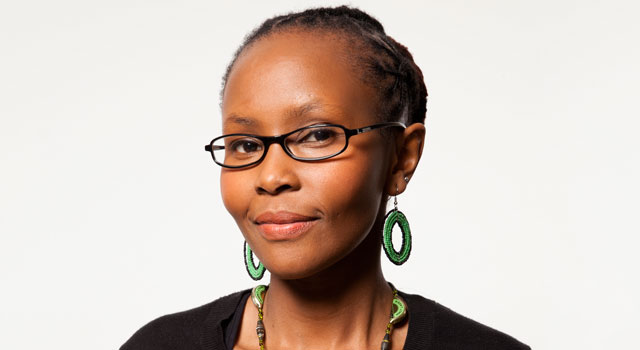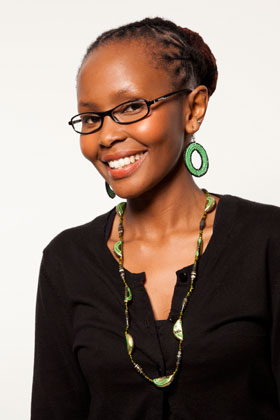
Juliana Rotich co-founded Ushahidi, a Kenyan-based nonprofit tech company, in 2008 with the aim of using technology to map reports of violence in the wake of Kenya’s closely contested December 2007 general election.
Today, Ushahidi continues to create open-source software for the collection, curation and mapping of information, but has also branched out into mobile applications and now even hardware with the BRCK communications device, which is drawing huge interest on Kickstarter.
“This year Ushahidi turned five,” Rotich tells TechCentral by telephone from Cape Town, where she is attending a World Economic Forum event this week. “We now have a footprint in more than 150 countries with our software.”
On Monday, Ushahidi — which means “testimony” in Swahili — launched a new service called Crowdmap that offers a way for people to map information.
Crowdmap is a hosted version of the Ushahidi platform, to allow people to crowd-source and track information easily with the bare minimum of equipment. “We wanted to change how information flows in the world,” Rotich says. “It started with crowd sourcing, but we realised that if you have connectivity issues, you can’t make sure information will flow.”
Head of the computer club
Rotich’s interest in technology started in her school days, when she chaired her high school’s computer club in Nairobi. “For some reason, there were lots of overlaps between the computer club and the badminton club, I guess because they were both seen as geeky activities,” she says. “Many of the people from those clubs now work for Microsoft or as engineers at companies like Boeing.”
After school, Rotich moved to Kansas City in the US to study computer science at the University of Missouri. That led to a job at US telecommunications operator Sprint, setting up routers and “other hardcore techie work”, before becoming a coder and project manager in Chicago.
At Sprint, she wasn’t earning much, so, to supplement her income, she worked as a network operations engineer for a small data centre. “There I had the best access to the Internet,” she recalls. “From the data centre, you felt connected directly to the Internet. It may sound really stupid but it made me feel like I could hug the Internet. It’s amazing compared to the connections I use now.”
In 2007, a TED Africa fellowship took Rotich to Tanzania. There she met Erik Hersman and Ori Okolloh, with whom she would go on to co-found Ushahidi the following year. By 2009, it had turned into a serious enterprise and a year later was being used to monitor humanitarian crises around the world.
One of the longest-running users of Ushahidi’s platform is LA Bucket Brigade, a Louisiana-based organisation that creates an “eyewitness pollution map” by monitoring pollution levels in the southern US state in the wake of the Deepwater Horizon oil spill in 2010.
“The amazing thing about that map is the ongoing involvement of citizens in providing information about a situation,” Rotich says. “It’s not just about saying ‘this sucks’, but rather, ‘this sucks, and this is how and why it sucks’. It’s building an archive and, as a result, a body of evidence.”
These days, Rotich calls Kenya home again, but she still travels extensively. This includes frequent trips to the US, where she’s a Director’s Fellow at the Massachusetts Institute of Technology in Boston.
“Kenya is officially home. I moved back properly in 2011, but I think I have always been a bit of a global citizen,” she says. “I can’t deny the influence of America because I moved there when I was 18, but Kenya had a massive impact before and after. There’s another tribe I feel a connection with and that’s the Internet tribe, which transcends culture and geography.”
 A global perspective is essential when running an entity with global interests and reach. “My day-to-day job involves 25 people in eight time zones,” she says. She feels fortunate that the Ushahidi board of directors is so supportive of the work she and her team does.
A global perspective is essential when running an entity with global interests and reach. “My day-to-day job involves 25 people in eight time zones,” she says. She feels fortunate that the Ushahidi board of directors is so supportive of the work she and her team does.
This support has also led to recognition. Ushahidi recently won the MacArthur Award for Creative & Effective Institutions. “We’re lucky to have flexible funders and a good board that actually gives us the space to do real research and development.”
As a black woman at the head of an African technology company, Rotich is something of an anomaly, but she says the situation is changing. “There are a number of emerging women in the African tech scene,” she says. “Women like Isis Nyong’o from Inmobi Africa and former Cellulant MD Wambura Kimunyu are good examples. I’m really glad that the pipeline for future women in tech is getting healthier.”
Rotich is involved with various initiatives to encourage women to consider careers in technology. These include Akirachix, an initiative headed by Linda Kamal, an Ushahidi developer. “What they do is encourage high school girls and run training classes to show them the options tech offers and they try to instil a love for it in them.
“There is a dearth of women in the sector, and what Erik [Hersman] calls the ‘pale-and-male’ phenomenon is still a problem, but there’s also a generation of really engaged, cool, smart people out there trying to change that.”
When she isn’t working Rotich, who is married with no children, says she enjoys doing Bikram yoga and spending time in the Kenyan countryside.
“I’m an aspiring tea farmer,” she says with a laugh. “I come from the Rift Valley and some areas there grow tea, while others grow coffee. When things get hectic, I go there to decompress and I think that’s where the interest in tea farming comes from. Also, I really like tea!”
Rotich says she plans to stay in Kenya for the foreseeable future, but that getting to visit other countries regularly is a privilege and one that keeps her focused. “Sometimes if I stay in Kenya too long I feel I’m missing out on the joy of tech,” she says. “When I visit the US, for example, I get to be completely steeped in it. It reminds me how far we still have to go.” — (c) 2013 NewsCentral Media

